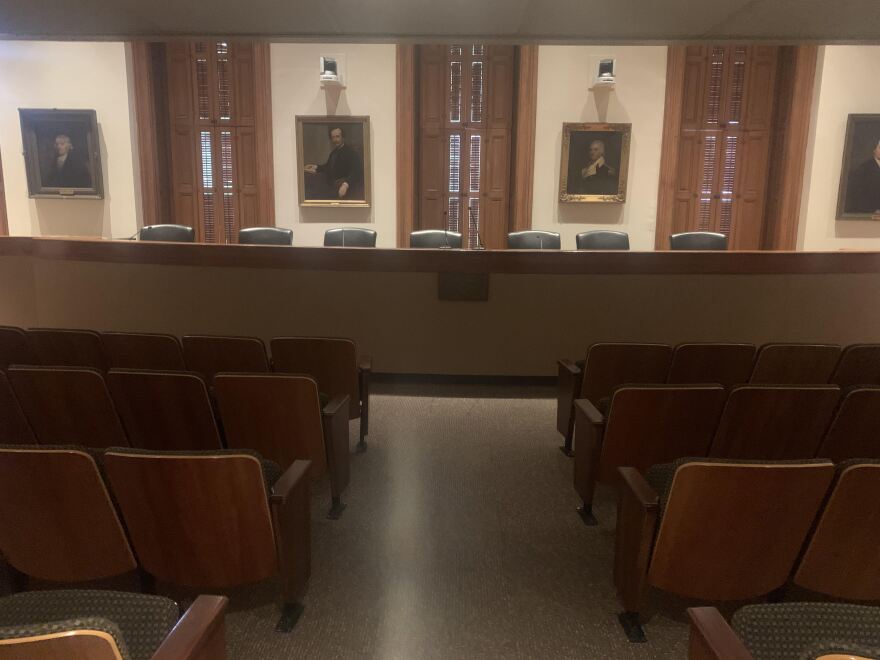Baltimore City’s spending board approved Mayor Brandon Scott’s first budget proposal Wednesday morning, with one abstention from Comptroller Bill Henry.
The Scott administration has framed the fiscal year 2022 budget, which includes $3.84 billion in operating costs and $487.6 million in capital investments, as one that maintains core city services amid the pandemic crisis without any new tax hikes.
“We think this is a responsible budget,” Budget Director Bob Cenname told the Board of Estimates. “This has been an extraordinarily difficult year financially for many reasons, primarily because of COVID-19. We think that this does begin the city's slow recovery from COVID-19. But we still have a lot of financial challenges. We're proud of the fact that we've been able to maintain, and in some cases start to restore, some services that we lost in fiscal year 2021.”
Henry, a fierce critic of the proposal, rejected the administration’s framing; he called it a continuation of the status quo at last month’s Taxpayers’ Night. He said he abstained from voting Wednesday because he did not receive line-by-line agency details until Monday and lamented the lack of time to fully review them.
“Not until this week was there an opportunity to discuss particular departmental budgets or review agency details,” he said. “I know that this is not the fault of anyone here. I now realize that our city has been doing it this way for years.”
The Board of Estimates is stacked in favor of the mayor, who is responsible for overseeing the budget. Scott and his appointees, City Solicitor Jim Shea and Acting Department of Public Works Director Matthew Garbark, voted in favor of the proposal.
City Council President Nick Mosby also voted yes, saying he cast his vote “out of respect for the work of [Scott], his staff and his team” and because passing the budget out of the Board of Estimates is procedurally necessary to bring the proposal before the City Council.
“Folks in Baltimore have been very clear: You want your city leaders to take an evidence-based approach that drives sustainable results and reverses our structural inequities. Today’s vote signals the start of the council’s work,” Mosby said.
The fiscal 2022 budget is due to be introduced at the council’s Monday meeting. The council will hold a Taxpayers’ Night where residents can offer budget feedback on May 27 and conduct budget hearings for individual agencies from June 1 to June 7; city law requires them to pass a budget by June 25. Fiscal year 2022 begins July 1.
The council has the power to cut money from the budget, but cannot move money to other initiatives — cuts are automatically sent back into the General Fund, where only the mayor can reallocate them. Last year, the council, led by then-Council President Scott, cut $22 million from the Baltimore Police Department. Then-Mayor Jack Young chose not to reallocate the money.
City residents voted overwhelmingly in the 2020 general election to give the council the power to move money around in the mayor’s proposed budget; that law won’t go into effect until the fiscal year 2024 budget season.



